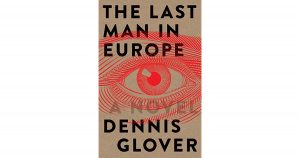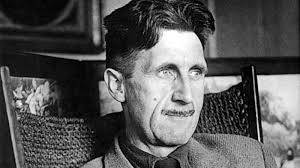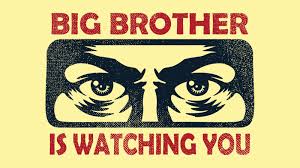The Last Man in Europe, Dennis Glover, Australia, 2017
 This is a brilliant book about George Orwell (or Eric Blair as he was actually called) and the creation of his novel Nineteen Eighty-Four. Not only beautifully written, it is meticulously researched, and it exhibits a deep understanding of a man who was both driven and physically tormented. It may be worth noting that the title of Glover’s book was the working title Orwell used for Nineteen Eighty-Four and which he changed the year before publication.
This is a brilliant book about George Orwell (or Eric Blair as he was actually called) and the creation of his novel Nineteen Eighty-Four. Not only beautifully written, it is meticulously researched, and it exhibits a deep understanding of a man who was both driven and physically tormented. It may be worth noting that the title of Glover’s book was the working title Orwell used for Nineteen Eighty-Four and which he changed the year before publication.
Glover has cleverly woven together episodes from Orwell’s life – Eton, the Spanish Civil War, recurring bouts of tuberculosis, his socialist leanings, his marriage – showing how they impacted on the author’s thought processes to eventually evolve into Nineteen Eighty-Four. It is obvious from Glover’s book that Orwell was not only an intellectual and an idealist, he was also uncompromising in his honesty, something that often put him at odds with other people, making him appear aloof and, at times, eccentric.

Nineteen Eighty-Four is not simply a book about Winston Smith (the main protagonist) and the dystopian nightmare which surrounds him, it is a book about the time in which it was written, and unfortunately even about the time in which we now find ourselves. As Glover writes at the end of his book, paraphrasing Orwell’s thoughts: ‘Every book was a product of its time – not just the era, but the days and the circumstances in which it was physically created; it had to reflect that or not get written at all.’

When Orwell was trying to find the right year in which to place the events of his book, he knew that by placing it too close to the 1940s would cause it to appear as propaganda, while placing it too far into the future would seal its fate as science fiction. He chose 1984, which was forty years on from when he first got the idea for the book; it was also the year his son, Richard, (like Winston Smith in the book) would turn forty. In 1944, forty-year-old Orwell looked at his son and wondered whether people in 1984 would still know what freedom was. ‘Would Richard’s generation know how their parents had taken a passably human world and turned it into a nightmare? Would they recognise the danger signs if they ever returned? (Page 238)
Although Glover has taken creative liberty when relating Orwell’s supposed thoughts and speech, this can hardly be seen as a problem, given that The Last Man in Europe is a work of fiction based on fact. It is a book that can be appreciated for its brilliance as a novel but also for its deep understanding of the subject matter and, hopefully, its ability to provoke awareness of the danger signs that are, without any doubt, everywhere around us.
